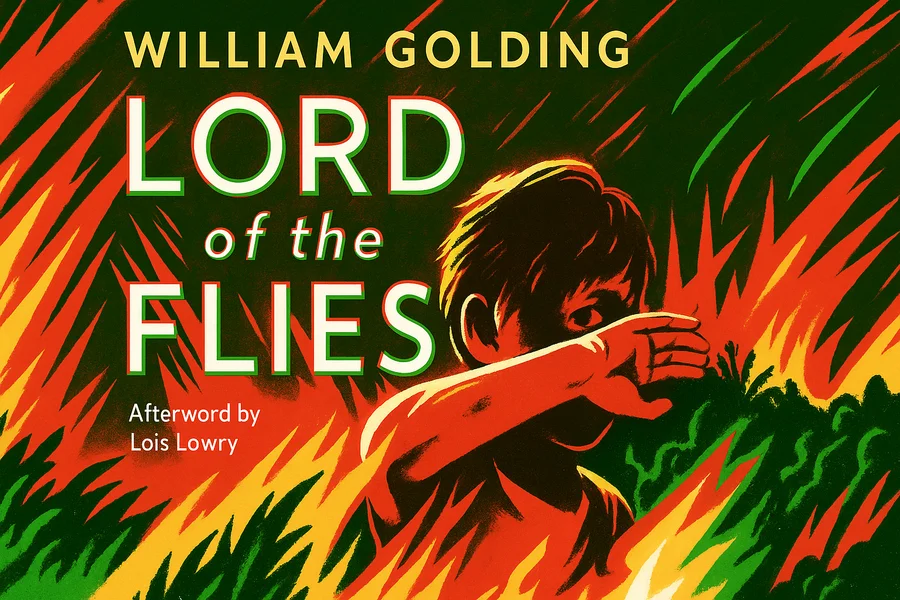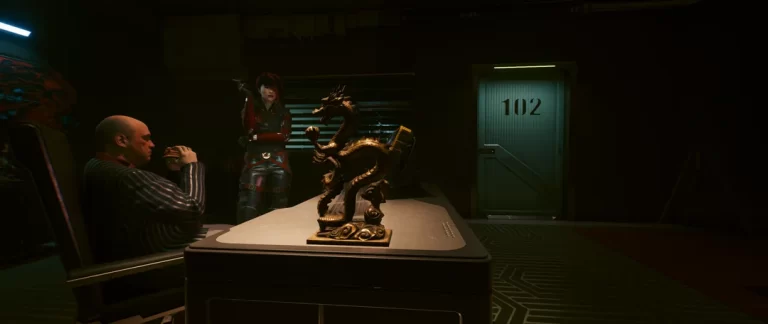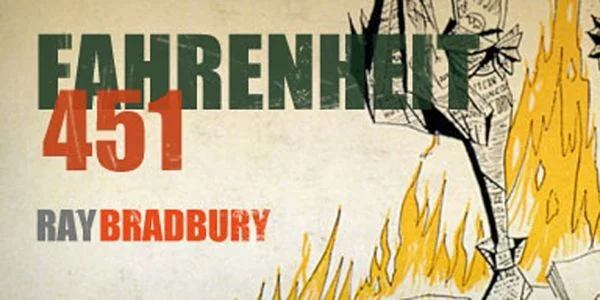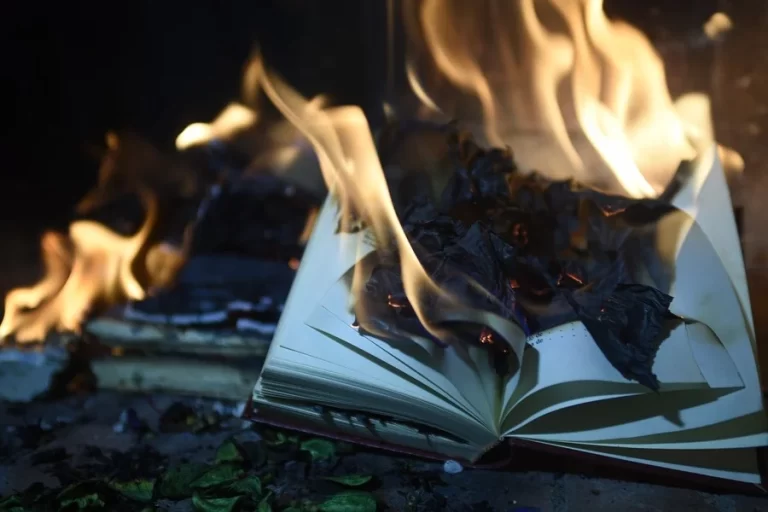William Golding’s Lord of the Flies concludes with a powerful scene that leaves readers grappling with conflicting emotions. On the surface, the arrival of the naval officer and the rescue of the boys may appear to be a reprieve—a long-awaited moment of salvation after a descent into savagery.
Yet, beneath this external “rescue” lies a disturbing ambiguity. Is the ending truly hopeful, or does it instead underscore the tragedy of lost innocence and human nature’s darker truths?
The Descent into Savagery
As the narrative progresses, the island, initially a paradise, becomes a setting of fear, violence, and power struggles. What begins as a group of schoolboys attempting to self-govern evolves into a fragmented society ruled by brute force. The murders of Simon and Piggy, along with the relentless manhunt for Ralph, mark the complete collapse of moral order.
By the time the naval officer arrives, the boys are not simply lost—they have become something unrecognizable. Jack’s tribe, painted and chanting, hunts Ralph with the intent to kill. The fire they ignite to smoke him out mirrors the chaos consuming their humanity. This fire, ironically, leads to their rescue, but not before exposing the full extent of their regression.
The Officer’s Arrival: Rescue or Mirror?
The naval officer’s appearance interrupts this climax. At first glance, it is a relief: civilization returns, the boys are safe, and the nightmare ends. But Golding subtly subverts this moment. The officer’s presence is not purely benevolent. His initial reaction is one of disappointment. He remarks that he would have expected “a better show” from “British boys,” suggesting a shallow understanding of the horrors that have unfolded.
Moreover, the officer himself is a symbol of war. He arrives in uniform, from a ship likely engaged in the global conflict raging beyond the island. In this light, his role is not just as a savior but also as a reminder that the same impulses that drove the boys into savagery exist in the adult world as well. The island is not an anomaly—it is a microcosm.
This moment of “rescue” thus carries a bitter irony. The boys are saved from their own destruction only to be returned to a world embroiled in similar violence. Golding leaves little doubt that the darkness on the island is not confined to children or isolated settings.
Ralph’s Tears: The Heart of the Ending
One of the most poignant elements of the ending is Ralph’s emotional collapse. He begins to weep “for the end of innocence, the darkness of man’s heart, and the fall through the air of a true, wise friend called Piggy.” This is not the cry of a child relieved by rescue, but of one who has fully grasped the consequences of what has happened.
Ralph’s tears serve as a crucial lens through which we can interpret the ending. His weeping acknowledges the irreversible transformation all the boys have undergone. They are not returning as the same children who once marveled at the coral reef and held assemblies. They have killed, betrayed, feared, and become something far from innocent. Ralph, in this moment, carries the collective weight of that transformation.
The fact that it is Ralph—who had consistently tried to maintain order and civility—who breaks down, makes the ending more tragic. If even he is overwhelmed by despair, what hope is left for redemption?
The Fragile Line Between Civilization and Chaos
Another reason the ending feels tragic is the thinness of the line between order and chaos that Golding exposes. The island setting, removed from adult supervision, allows for an experiment in human nature. The quick disintegration of the boys’ society suggests that civilization is not as deeply rooted as we might hope.
Their descent does not stem from external pressure but from within. Fear, the need for power, and the rejection of responsibility quickly outweigh reason and cooperation. That they must be saved by outside force—and not through any restoration of internal order—underscores this fragility.
The officer’s presence does not restore their morality; it simply halts the spiral. It’s a temporary reprieve, not a cure.
A Faint Glimmer of Hope?
Despite the overwhelming tragedy, some critics argue that the ending contains a seed of hope—not in the rescue itself, but in Ralph’s recognition. His grief, his understanding of what was lost, and his mourning for Piggy suggest a moral awakening.
If any redemption exists, it may lie in this awareness. The acknowledgment of darkness, the naming of it, is the first step in resisting it. Ralph’s tears could signify not only sorrow but also a deepened understanding of human complexity.
However, this hope is subdued, almost philosophical. It does not undo the deaths, the betrayals, or the trauma. It offers no certainty that the boys—or society—will avoid repeating the same patterns.
Golding’s Commentary on Human Nature
Ultimately, the ending reflects Golding’s bleak view of human nature. He does not romanticize childhood or paint innocence as innate. Instead, he suggests that beneath the surface of civilization lies a potential for savagery in us all.
The rescue, then, functions more as a mirror than a salvation. The officer is part of a greater war machine. The boys are simply moving from one battlefield to another. The island merely stripped away the pretense. What remains is the raw, uncomfortable truth.
A Dual Ending with Unequal Weight
Is the ending of Lord of the Flies hopeful or tragic? The honest answer is that it is both—but not in equal measure.
The surface-level rescue provides a moment of relief. Yet this is quickly eclipsed by the emotional and symbolic weight of what has occurred. The tragedy is not only in what happened on the island, but in what it reveals about us.
Any hope that exists is quiet, internal, and hard-won. It resides not in the rescue, but in the potential for self-awareness. Golding gives us no triumphant return, no full redemption—only the possibility that understanding our darkness might someday help us resist it.
In that sense, Lord of the Flies ends not with celebration, but with reflection—and perhaps that, more than anything, is its most enduring message.



